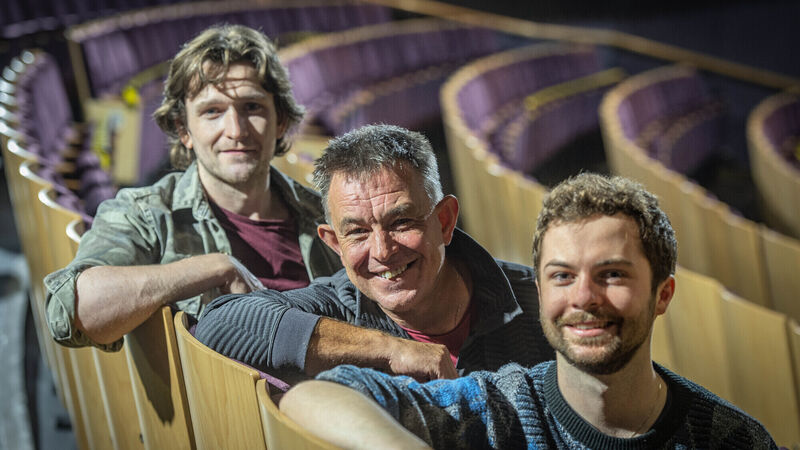'The arts sector has learned never to take anything for granted'

Actors Shane O'Regan and Alex Murphy with director Geoff Gould (centre) of Philadelphia, Here I Come! gather in the Cork Opera House on the first day of rehearsals. Picture: Michael Mac Sweeney/Provision











